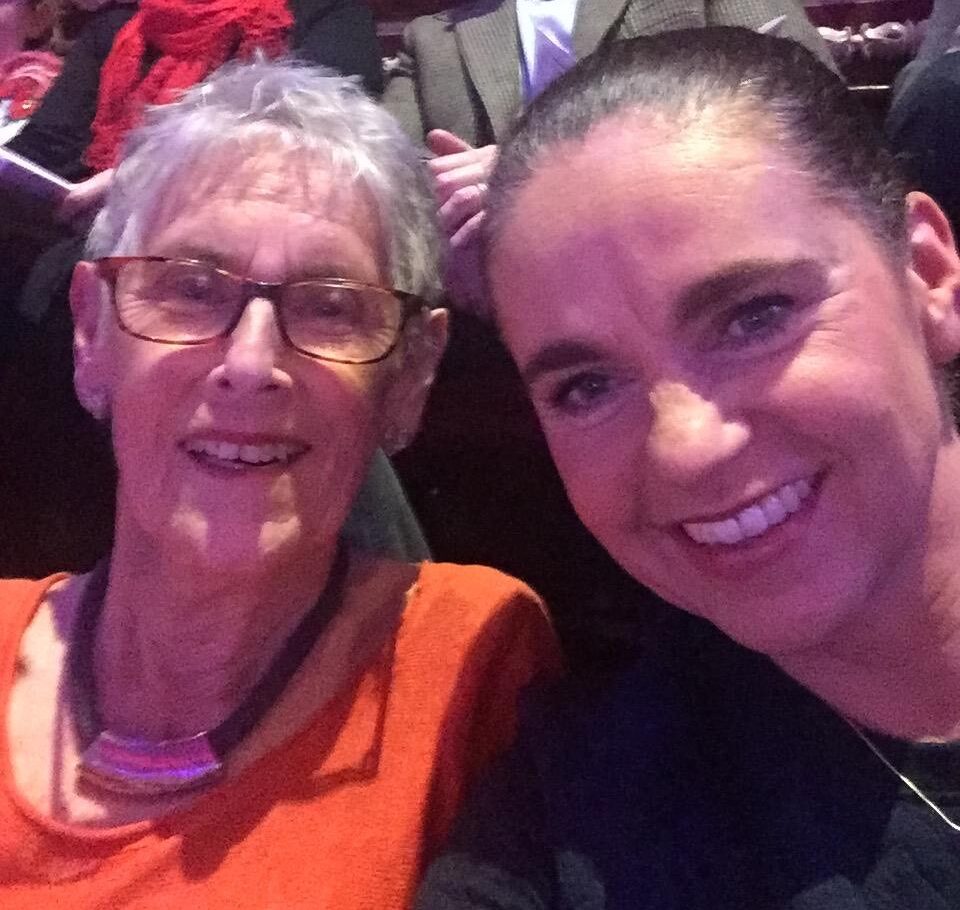I love bread. I mean, I really love it. But it is possible to have too much of a good thing. Spending time squished between the stuff you love can sometimes be suffocating. Yup, I’ve been an involuntary member of the Sandwich generation community for 20 years
“My circumstances are not special. In fact, they are very ordinary which is why talking about them is important”
You could say delayed parenthood was one factor, meaning my parents were older by the time I started my own family, which also coincided with the start of their health problems. Acknowledging that babies and toddlers can be demanding work (I had three under 5) this life stage coincided with a time when my father needed full-time care and I was working in a fairly senior marketing role in the corporate world. Whilst my mother led the care charge, this was my warmup lap for what was to become my new normal. 50-mile round trips several times a week suddenly needed to be fitted into my life. With the support of my husband and paid help, I somehow managed to be everywhere at once or at least gave the illusion of this.
Following my father’s death, for the next 7 years I was caring for my brother. He did not live with me, but I had direct involvement in all his care & the running of his life. My employer at the time was understanding and flexible and most of the time, I managed to just about stay afloat. I reduced my working hours to 3-4 days a week, which gave me time to be home with my children one full day a week and do what I needed for my brother in between, just. After his death, it was my mother’s turn.
“Whilst she has done a fantastic job at staying independent & in her own home, the curse of Covid changed everything. She lost her confidence, her physical & cognitive health declined, and she became isolated”.
She no longer drives and relies on me to manage her health, finance & admin, her shopping, outings, medication and so on. She will soon be 90 years old, and her needs are only going to increase. More home help, live-in care, a care home – near me or where she lives? These are reoccurring thoughts I live with every day.
Since Covid, working flexibly has been key to being able to manage her needs, unplanned hospital stays, support my children going through secondary education, one living a neuro-diverse life which has taken much of my energy to learn how to be a supportive and understanding parent, university transition & so on.
“This has meant I have chosen to be self-employed as a marketing & ops consultant and working flexibly 3-4 days a week”
(often at the weekend, so that I could be free during the week to help with medical appointments). Working from home meant I could stay with my mother when needed and carry on with work responsibilities as much as possible.
“Working with people and companies who trust you to get the work done means you naturally reward that trust by going the extra mile whenever you can. It’s a win win”.
I’m not sure my life over the past 4 years could have fitted into a full time or corporate role, however considerate an employer may be. Knowing this wasn’t an option meant I shut the door on many potential opportunities and settled into a quiet self-employed professional journey. It was a sacrifice but life dictated compromise to live any kind of manageable life.
There has been a downside to this way of working. For me anyway. It means you don’t socialize in the same way as you do when going into an office, meeting friends for lunch or having a drink after work. Sometimes the shortage of socialisation has left me drowning in some of the negative emotions associated with caring – the ones we don’t talk much about. Possible because they feel shameful or wrong in some way – I mean isolation, dread, fear, frustration, guilt, low mood, exhaustion & sometimes moments of anger. Yep, anger. An emotion society doesn’t approve of but yet, it’s just an emotion on a spectrum of emotions we all feel when we’re squished between two bits of bread. It’s how we deal with everything that matters.
So here are my top tips for when you find yourself on the bumpy journey without a sat nav:
- Self-care is where it starts. Be sure to always put your own oxygen mask first. Self-compassion can be our own best friend. It’s simply giving the same kindness to ourselves that we are showing to others.
- Find someone to offload to. It’s vital. Friends who have experienced something similar rather than other family members are my shout; free of judgement but often full of wisdom. Equally there are lots of networks for carers out there. Speaking with strangers can be reassuringly helpful. Carers UK offer online meetups.
- Speak to your employer about your situation. Go with solutions – flexible working, compressed hours, reduced days, a sideways move etc. Advice on how to ask for flexible working can be found here
- If making a career change, seek third party support to help you define the parameters of what you want/can do and how you will do it to ensure you thrive professionally in the way that is right for you, whilst you maintain your caring responsibilities. There are lots of organisations like Brave Starts who can help
